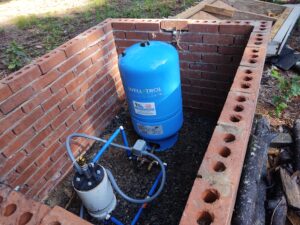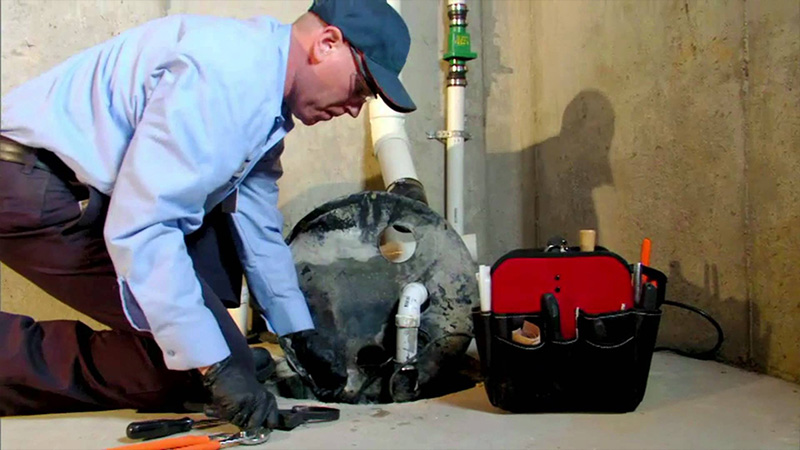Premium Water Softeners: Transforming Difficult Water into Soft, Glamorous Comfort
Premium Water Softeners: Transforming Difficult Water into Soft, Glamorous Comfort
Blog Article
Comprehending the Secret Parts of Effective Water Purification Equipments

Importance of Water Filtration Equipment
Water purification systems play a vital function in guaranteeing access to risk-free and tidy drinking water by effectively getting rid of impurities and pollutants. These systems are necessary in attending to the growing problems over water high quality and the potential wellness dangers connected with eating polluted water. By utilizing numerous filtering devices such as reverse osmosis, triggered carbon, and UV sterilization, water filtering systems can efficiently get rid of unsafe compounds like microorganisms, viruses, hefty metals, and chemicals from the water.
Furthermore, water purification systems help to boost the taste and smell of water by removing chlorine, sediments, and other toxins that can influence its top quality. Water Treatment. This improvement in water quality not just makes it extra palatable however additionally encourages individuals to consume alcohol an adequate amount of water daily, promoting much better hydration and total health
Kinds of Filtering Parts

Physical filters are developed to literally stress out contaminations from the water. These filters can be made of materials like ceramic, carbon, or even sand, and they work by capturing fragments bigger than the filter's pores as water goes through.
Chemical filters use various chemical processes to remove pollutants from the water. Instances consist of turned on carbon filters, which adsorb contaminations, and turn around osmosis membrane layers, which use pressure to separate contaminants from the water.
Biological filters utilize living organisms like bacteria or algae to break down raw material and contaminants in the water. These filters are often used in wastewater treatment plants or all-natural water filtration systems.
Understanding the different sorts of filtration parts is critical for picking the most suitable water filtration system for specific purification demands.
Feature of Debris Filters
Sediment filters play a critical duty in water filtering systems by successfully catching solid particles put on hold in the water. These filters are typically the very first line of defense in a filtration system, eliminating larger bits such as sand, silt, dust, and rust before the water relocates via finer filtration phases. By trapping these sediments, the filters prevent them from reaching downstream components, hence expanding the life expectancy look at this site and efficiency of the whole system.
The function of sediment filters is crucial in preserving water high quality and protecting delicate devices from damage created by debris. In addition, by eliminating visible bits, sediment filters boost the clarity and preference of the water. Routinely cleansing or replacing debris filters is vital to ensure ideal efficiency. Ignoring this upkeep can result in clogging, minimized water flow, and endangered filtration performance. On the whole, sediment filters are important parts that contribute significantly to the efficiency of water purification systems.
Role of Activated Carbon Filters
Playing an important function in water filtering systems, activated carbon filters contribute in removing impurities and contaminants from the supply of water. These filters are created to adsorb and catch a large range of contaminants, including chlorine, unstable natural substances (VOCs), chemicals, and herbicides. The turned on carbon product has a huge surface area, allowing for the efficient trapping of impurities with a process called adsorption. As water passes with the filter, the turned on carbon holds and brings in onto the contaminations, making certain that the water that appears on the various other side is cleaner and more secure for intake.
Turned on carbon filters are highly reliable at boosting the preference and odor of water by reducing chemicals that can affect its top quality. They are likewise capable of removing particular hefty metals like lead and mercury. Additionally, these filters can aid stop the buildup of microorganisms and algae in water, additional enhancing its total top quality. Because of their versatility and integrity, triggered carbon filters are a key part in making sure that water is cleansed to the highest criteria before reaching consumers.
Comprehending Reverse Osmosis Equipments
Reverse osmosis systems are sophisticated water filtration systems that utilize an innovative process to get rid of contaminants and pollutants from alcohol consumption water. These systems work by using stress to the water, requiring it through a semi-permeable membrane. This membrane layer acts as an obstacle, enabling just pure water molecules to travel through, while obstructing larger advice particles such as minerals, chemicals, and other pollutants. Consequently, the water that comes out on the other side is significantly cleaner and much safer for usage.
One secret benefit of reverse osmosis systems is their capability to eliminate a variety of contaminants, including heavy metals, dissolved germs, infections, and solids. This makes them extremely efficient in enhancing the general quality and safety of alcohol consumption water. In addition, reverse osmosis systems are reasonably low-maintenance and can be mounted under the sink or in a main purification system, supplying practical accessibility to clean water throughout the home. In general, comprehending how reverse osmosis systems work can assist individuals make informed decisions concerning their water purification demands.
Verdict
In verdict, efficient water purification systems are important for ensuring risk-free and tidy drinking water. By recognizing the function and function of each element, individuals can make educated choices when selecting a water filtering system.
Water purification systems play a vital role in making sure accessibility to clean and risk-free drinking water by effectively eliminating impurities and impurities. By utilizing different purification mechanisms such as reverse osmosis, turned review on carbon, and UV sanitation, water filtration systems can efficiently get rid of unsafe substances like germs, viruses, hefty steels, and chemicals from the water supply.
Sediment filters play a critical function in water purification systems by effectively catching strong fragments put on hold in the water (Pump repairs & installation).Playing an important duty in water filtration systems, activated carbon filters are important in eliminating pollutants and pollutants from the water supply.Reverse osmosis systems are innovative water purification systems that use an advanced process to eliminate pollutants and pollutants from alcohol consumption water
Report this page